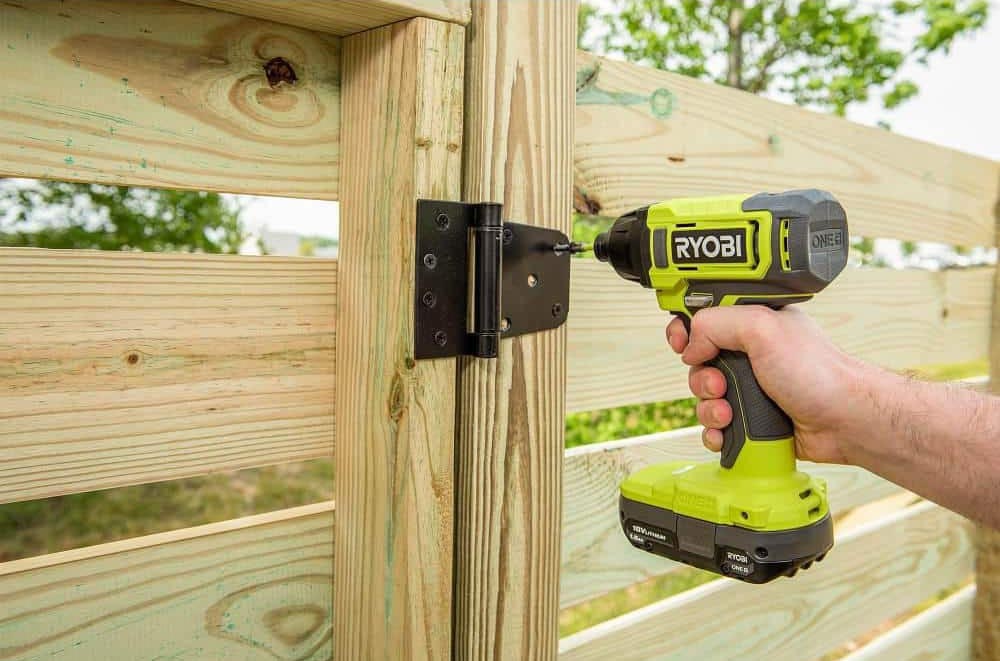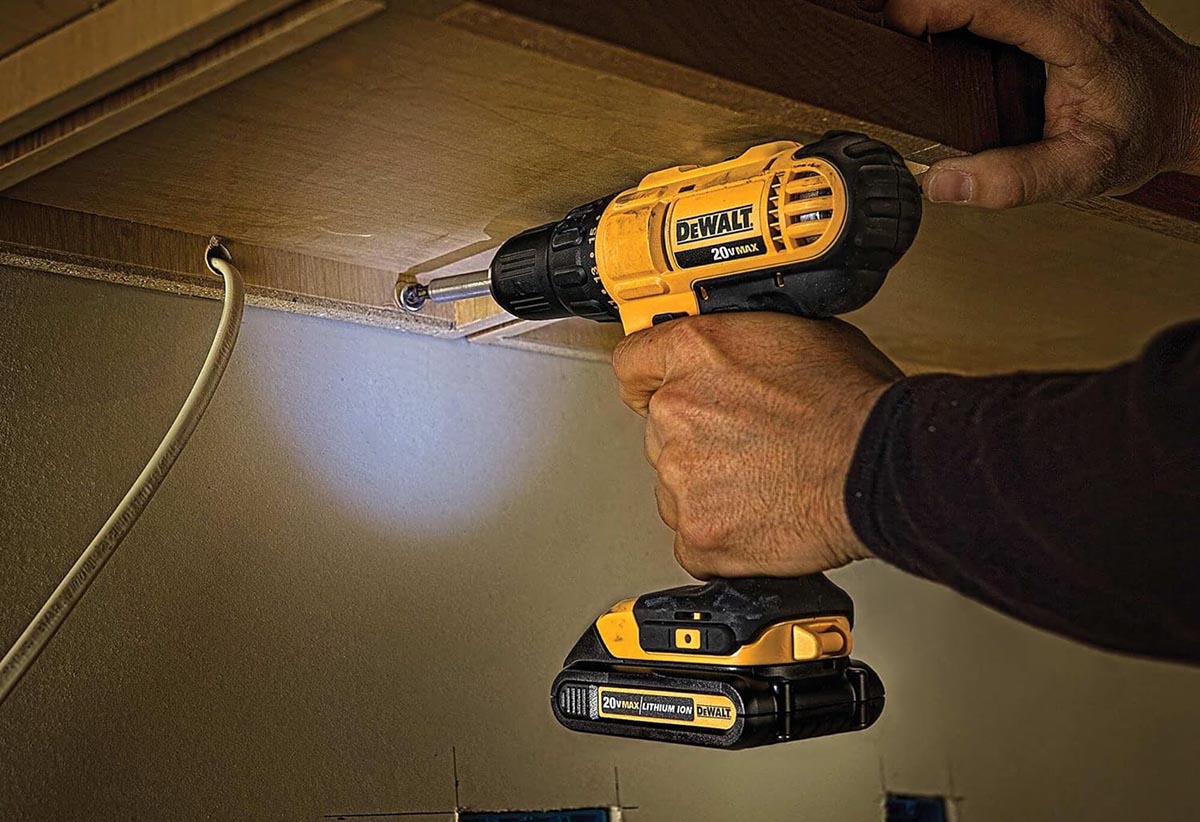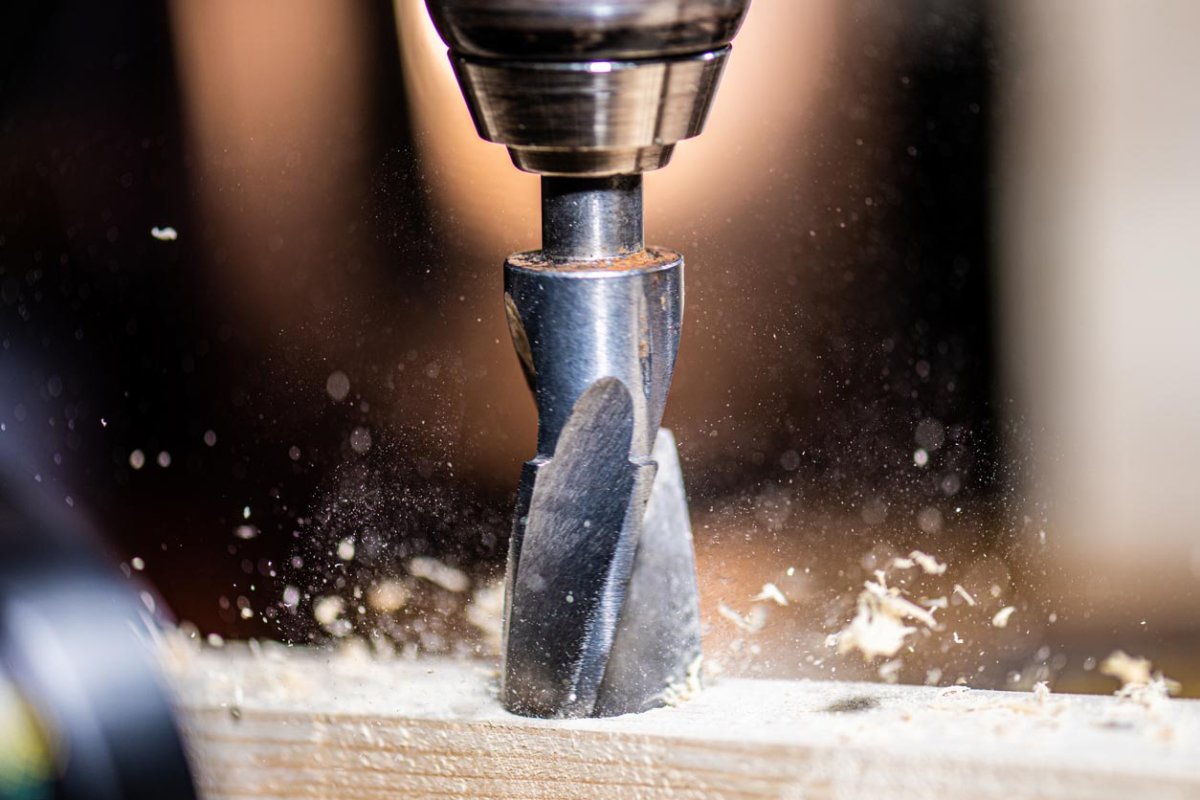We may earn revenue from the products available on this page and participate in affiliate programs. Learn More ›
Ryobi and DeWalt are two of the most prominent tool brands on the market. Both offer extensive ranges to tackle every conceivable task, and are tremendously popular with DIYers and professionals alike. On the surface, Ryobi is the more budget-friendly choice, whereas DeWalt is often considered the commercial-grade option. But are these assumptions accurate? Below, we’ve taken an in-depth look at the brands and products to settle the ongoing Ryobi vs. DeWalt debate.
How We Compared Ryobi vs. DeWalt
We’re constantly on the lookout for new models, the latest innovations, and any offers on cheap tools that we can share with our readers, and that goes for Ryobi and DeWalt too. In this article, we provide an overview of each brand, plus some background information to help readers in their research. In addition, we’ve focused on closely matched tools to check price and performance. We compared a popular cordless DeWalt drill vs. Ryobi’s alternative and did the same exercise with table saws.
Ryobi

Price Range: $ to $$$
Our Top Picks: Ryobi One+ 18V Cordless ½-Inch Drill/Driver Kit for $79 and Ryobi 10-Inch Portable Table Saw With Stand for $229. Ryobi started making power tools in Japan in 1968. While the Techtronic Industries group now owns it, the brand’s U.S. headquarters is in Anderson, South Carolina. In theory, Ryobi tools are exclusive to The Home Depot. It even says so on Ryobi’s official website. However, they are also widely available at most major retailers. Ryobi is particularly innovative with battery technology and cordless equipment. The Ryobi One+ was introduced back in 1996, and now more than 225 tools can all use the same battery. The 80-volt (V) ride-on lawn mowers that debuted in 2023 are another fine example of how the brand pushes the performance boundaries of cordless equipment.
Pros
- Ryobi offers competitively priced tools that are better quality than many budget imports
- The huge Ryobi One+ range makes it easy for customers to buy compatible tools without needing extra batteries
- Innovative technologies advance the scope and performance of cordless tools
Cons
- While tools are good value, they lack the build quality or durability necessary for jobsite use
- Limited U.S. manufacturers (more details below)
Shop Ryobi at:
DeWalt

Price Range: $$ to $$$.
Our Top Picks: DeWalt 20V Cordless ½- Inch Drill/Driver Kit for $99 and DeWalt 10-Inch Portable Table Saw With Stand for $549. DeWalt has been a U.S.-based tool manufacturer since 1924. The brand became part of Black+Decker in 1960, which then merged to form Stanley Black & Decker in 2010. Headquarters are in New Britain, Connecticut. DeWalt tools and accessories are available online and in stores nationwide. In addition to corded tools, DeWalt’s cordless range is also extensive, with over 200 tools that come under the 20V “Max” banner. Flexvolt models can be up to 60V, but while they are fitted to some garden equipment, DeWalt mowers still use gas engines. Cordless tools aside, DeWalt appears to offer greater variety than Ryobi. We were unable to find precise figures, but DeWalt is considerably stronger in terms of variety in hand tools, accessories, and consumables.
Note: Most of Ryobi’s cordless tools are rated 18V, whereas DeWalt’s are 20V. Although this suggests the latter are more powerful, the two companies use alternate ways of describing their battery output. In practice, both deliver very similar performance.
Pros
- DeWalt has had a reputation for reliable, durable tools for decades
- With a long history of U.S. design and manufacture, DeWalt has facilities in 7 states employing more than 10,000 people
- Offers a wide choice of tools, accessories, and consumables for all skilled tradespeople
Cons
- Prices put some tools beyond the reach of many DIY users
- Focus is sometimes on performance rather than ease of use
Shop DeWalt at:
Ryobi targets homeowners, while DeWalt focuses on professionals.
There’s no doubt that Ryobi products are largely aimed at the DIY market, while DeWalt is more often the choice of professionals. DeWalt’s motto “Guaranteed Tough” supports the idea that its tools are built to withstand the rigors of the jobsite. That shouldn’t suggest Ryobi tools are flawed, but they aren’t designed to be used around the clock. There’s another reason Ryobi doesn’t want to compete with DeWalt head-on. Its parent company, Techtronic Industries, also owns Milwaukee. That brand is seen as a direct competitor to DeWalt, so it doesn’t make commercial sense for Ryobi to try to appeal to the same market. There are always exceptions in the DeWalt vs. Ryobi contest that make it worth checking individual specifications before purchasing. For example, we might assume a DeWalt impact driver would be more powerful than the Ryobi version. The latter wins with 370 ft-lbs (foot-pounds) more maximum torque—a key feature of those tools.
DeWalt tools are more expensive than Ryobi equivalents.
This is almost invariably true, and the more expensive the tool, the more dramatic the difference. The Ryobi vs. DeWalt drill and table saw prices provided above are good examples. Keen DIY enthusiasts might be prepared to spend another $20 to get the durable DeWalt drill, but would they pay more than double for a table saw with the same motor power and size blade? The DeWalt saw does have a considerably larger cutting capacity, which could make a big difference to a pro. However, it is less likely to be a factor for an amateur. This underlines the key difference when it comes to pricing. Ryobi tools generally provide great value, whereas DeWalt equivalents usually carry premium price tags. The big question is whether you need the extra performance and durability the latter delivers.
DeWalt is a U.S. manufacturer, whereas Ryobi is a Japanese manufacturer.
DeWalt has extensive manufacturing in the U.S. and assembles products in the U.S. using “global materials,” meaning parts are sourced overseas. DeWalt also has manufacturing plants in Brazil, China, the Czech Republic, Italy, Mexico, and the United Kingdom. Some of that production is imported, so not every DeWalt tool sold in the U.S. is made in the U.S. Ryobi is a Japanese brand, although the parent company is based in Hong Kong. The company has manufacturing facilities in China, the Czech Republic, Germany, Mexico, Vietnam, and the U.S. The plant in Anderson, South Carolina is over 1 million square feet and includes design, engineering, assembly, and warehousing.
Our Verdict
There isn’t a clear winner in the Ryobi vs. DeWalt debate simply because the two are not direct competitors. If you’re a DIYer or looking for tools to keep the yard tidy, then Ryobi almost certainly has a value-for-money solution. However, if you depend on your tools to help you earn a living, you’ll want to buy DeWalt.


